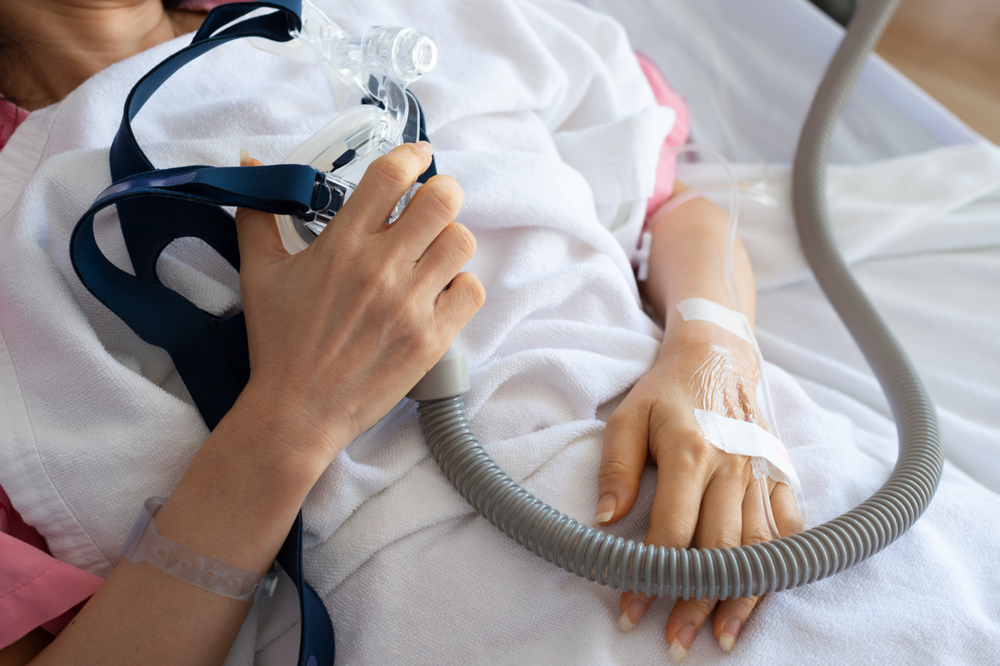An estimated 18 million Americans suffer from sleep apnea, a disruptive, and sometimes dangerous, condition that affects a person’s ability to breathe regularly and continuously when sleeping. Luckily, once diagnosed, treatment of sleep apnea can be highly effective thanks to continuous positive airway pressure (CPAP) machines that push air into the lungs throughout the night. CPAP machines ensure adequate and appropriate oxygen levels are maintained and provide its users with a more restful sleep.
But with the June 2021 Philips CPAP recall that affects three to four million devices in the U.S. alone, sleep apnea sufferers are left to either continue using a defective device that may cause serious harm or stop using their device. There are clear risks for either option, and while Philips has committed to fixing or replacing all of their defective machines, it will take until September 2022 to do so.
The situation is stressful – not to mention, potentially life-threatening for some. To make matters worse, sleep apnea sufferers are now faced with other concerns that were identified in recent research: a study conducted during the pandemic shows a potential connection of sleep apnea to increased risks of serious complications and death from COVID-19.
Research Connects COVID-19 Risks to Sleep Apnea
The research conducted by doctors at the Cleveland Clinic showed that sleep apnea increased the risks of severe COVID-19 and death. Sleep apnea patients in the study who were infected with COVID-19 had a 31% chance of the virus causing serious complications that required hospitalization, as well as a 31% increase in death.
Another study released in May 2021 showed other concerning connections between the sleep condition and COVID-19. Conducted at Kaiser Permanente in California, the results of the research showed that patients with sleep apnea had a higher rate of infection of the virus. They also noted it’s possible that the longer an assisted breathing device is used throughout the night, the less chance patients had of contracting COVID-19.
More than 80,000 patients qualified for the Kaiser sleep apnea and COVID-19 study. The team analyzed the length of time positive airway pressure machines, such as Philips CPAP devices, were used and the rate of infection. When participants increased the number of hours used while sleeping, their chance of contracting the virus decreased.
Further research and peer review are needed to understand the connections and corroborate the findings of both studies. However, these alarming results have increased concerns among sleep apnea sufferers at a time when many are using or have to stop using recalled Philips CPAP devices. The condition already includes a long list of possible health issues when undiagnosed and untreated, and with COVID-19 still rampant, how it could affect those with sleep apnea is concerning.
COVID-19 and Sleep Apnea Similarities
It’s well-known that many people who need to be hospitalized from COVID-19 suffer from hypoxia, a condition that occurs when the body is deprived of the oxygen it needs. Unfortunately, hypoxia is also a complication of sleep apnea.
Sleep apnea can cause blood oxygen levels to decrease from lack of continuous air and increase once breathing returns. Decreased oxygen can cause inflammation in the body, increasing the risk of heart disease, stroke, diabetes, and pancreatic damage.
Similarly, we know that COVID-19 also causes inflammation in major organs and that assisted breathing devices are required in serious cases to help maintain oxygen levels and prevent further damage and complications.
What is the Philips CPAP Recall?
In June 2021, Philips recalled millions of their CPAP devices, BiPAP and ventilator machines after receiving complaints of the noise-abating foam breaking down, causing users to ingest and inhale its particles. The polyurethane foam (PE-PUR) contains toxic and carcinogenic compounds, which may cause mild to severe, short- and long-term health complications and illnesses.
With widespread claims against Philips, including class action lawsuits, those affected seek compensation and accountability for the defective devices. Some CPAP lawsuits cite injuries and illnesses from the broken-down foam. Others have filed lawsuits for the impact of discontinuing the use of their Philips CPAP machine, including lost wages and emotional and physical suffering. (Unless the device is at least five years old, insurance companies won’t cover the cost of a replacement, even if a healthcare provider advises their patient to stop using it).
Greater Concerns for Sleep Apnea Sufferers
Data suggests that when the oxygen levels of someone with COVID-19 are lowered during sleep, they may face worse outcomes from the virus. A CPAP machine can help maintain oxygen levels, but the Philips recall complicates an already tough situation.
So, what does the latest research mean for the millions of Americans with sleep apnea? People with the condition already face risks associated with using a recalled Philips CPAP machine, but also if they discontinue use until it’s replaced. And now, with two studies showing possible connections of sleep apnea to increased risks of serious complications, death, and infection rates of COVID-19, concerns are mounting – with good reason. Hopefully, more research will give medical professionals and sleep apnea patients a better understanding and safeguards for managing new risks.













